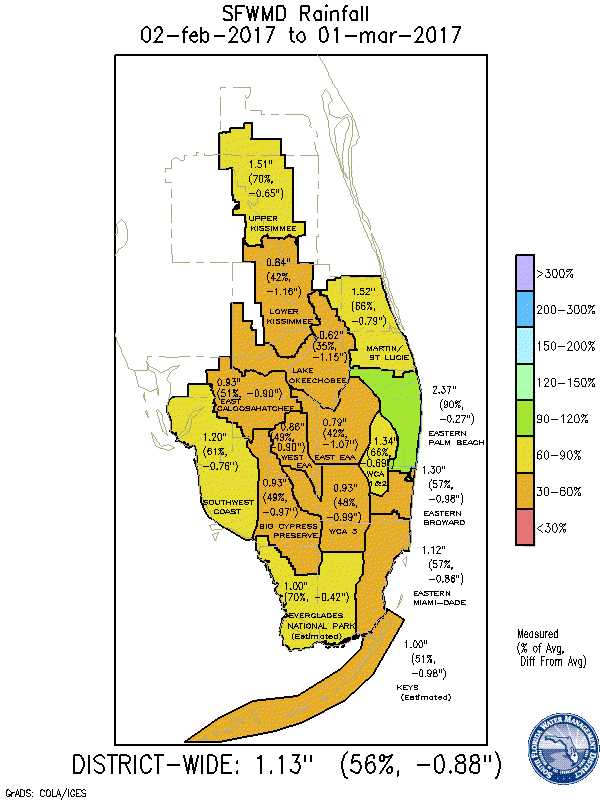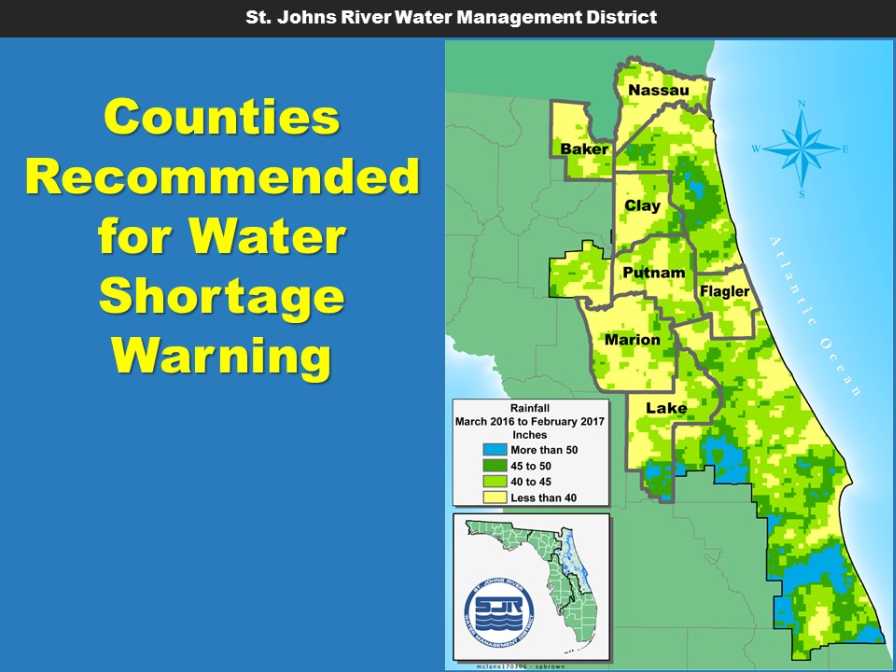Concerns Mount in the Sunshine State Over Growing Rainfall Deficits
It’s not called the “dry season” for nothing. But for most of Florida, this season has been quite arid, especially when you compare it to last year’s historic wet spell.
Reports of brush fires, some pretty extensive, have peppered local headlines lately.
During February, South Florida experienced some scattered rainfall, but overall precipitation continues to be well below average during this dry season, according to the South Florida Water Management District (SFWMD) officials. A total of 1.13 inches of rain fell District-wide last month, representing 56% percent of average.

Most of the rainfall in South Florida fell on Feb. 22, which was the single heaviest rainfall since Hurricane Matthew in October. The month of November was the driest since recordkeeping began in 1932.
In response to the extra dry conditions, SFWMD Governing Board members adopted a resolution urging all South Floridians, businesses, and other water users to heighten water conservation efforts. The main areas of concern for dry conditions include Palm Beach, Martin, and St. Lucie counties, along with Charlotte, Lee, and Collier counties.
Similarly, the St. Johns River Water Management District (SJRWMD) Governing Board approved a Water Shortage Warning Order as trends indicate below-average rainfall to continue across parts of the district.

Baker, Flagler, Nassau, Marion, Putnam, and Alachua counties all have 12-month deficits greater than 10 inches. In February, Duval, Osceola, and Indian River counties all experienced rainfall that was 1.3 inches below average. Over the past 12 months, rainfall remained below average, with a districtwide deficit of 9.1 inches.
Through an inter-agency agreement with Southwest Florida Water Management District, the SJRWMD order also will promote compliance and support uniform water use restrictions across districts.









